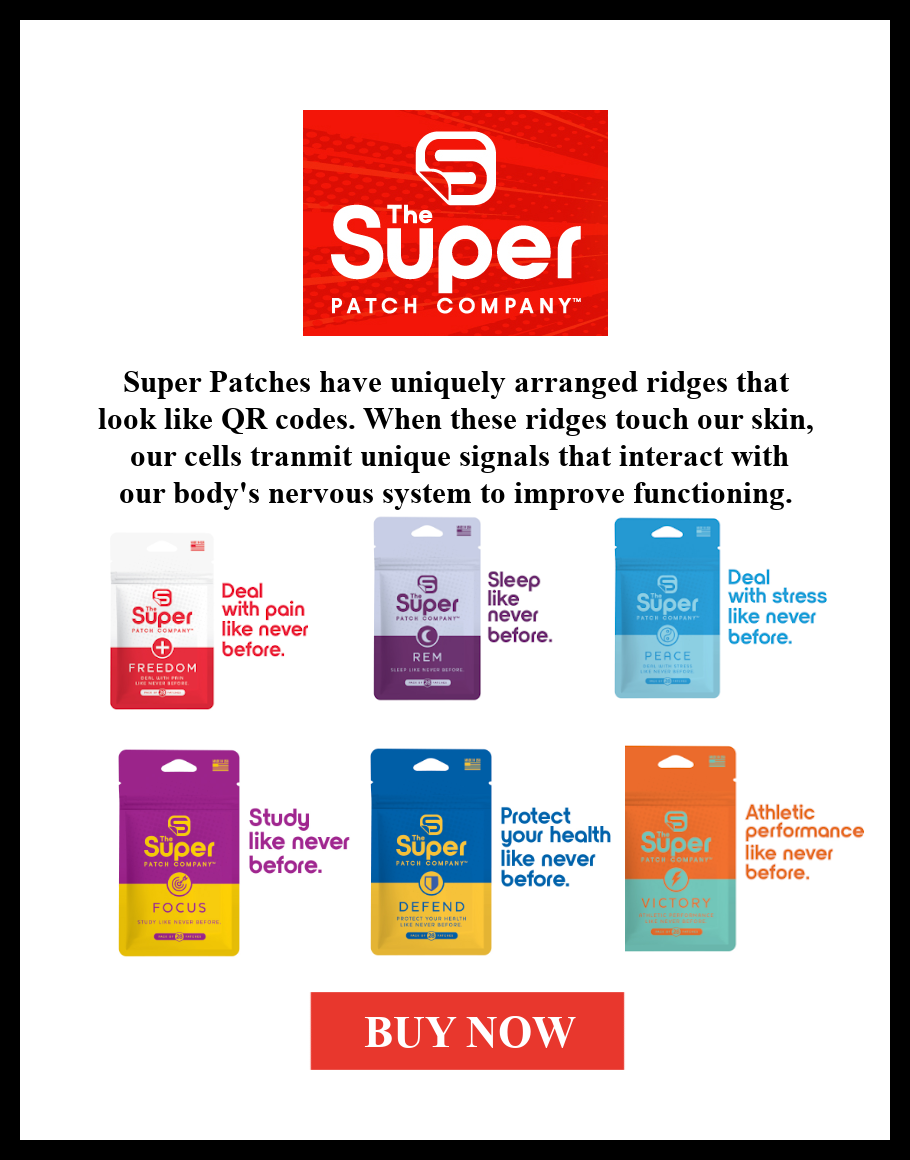
Chronic pain patients already have enough physical, emotional and financial challenges. Cold and flu season is here and t's important to do everything you can to keep your immune system healthy. One place to look is at your pain treatments, because they have differing impacts on immunity.
Some pain treatments are likely to decrease immunity and others are likely to help. What follows is a list of immune suppressing and immune boosting pain treatments. If you are on a drug that suppresses immunity, do not panic and go off of it—rapid tapering or abrupt discontinuation of many of these medications can be dangerous. Consult your physician! Instead, pay close attention to the natural immune boosters you can consider adding, which could potentially facilitate a gradual reduction in the use of those treatments that are detrimental to your immune system.
Pain Treatments that Suppress Immunity
Corticosteroids (prednisone, cortisone, etc.)
According to the Cleveland Clinic and many other health authorities, steroids reduce the production of chemicals that cause inflammation. That is why they are commonly used to treat inflammatory conditions such as rheumatoid arthritis and lupus. While suppressing inflammation, corticosteroids also reduce the activity of the immune system by affecting the way white blood cells work. This creates a lowered resistance to infection.
Opioids
A 2019 review of the evidence of opioid impact on the immune system concluded that both illegal and prescription opioids negatively impacted the immune system in multiple ways. These included suppression of natural killer cell activity, suppression of antibody production and antibody response, depression of T cell mediated adaptive immune responses and more. Studies have shown increased infection rates, particularly for pneumonia, in patients who were taking opioids for long term treatment of pain.[1]
NSAIDs
A 2009 study looked at whether non-steroidal anti-inflammatory drugs, including ibuprofen, Tylenol, aspirin and naproxen, reduced immune response. The researchers concluded that these drugs inhibit antibody production in human cells and that “the use of widely available NSAIDs after infection or vaccination may lower host defense”.[2]
Immunosuppressant drugs
Immunosuppressant drugs are used to treat Lupus, MS, rheumatoid arthritis and other autoimmune diseases. They are also prescribed for patients who have received organ transplants to decrease the chances the organ will be rejected. Immunosuppressant drugs are designed to reduce the strength of the immune system. This leaves the patient’s body more susceptible to infections.[3]
Pain Treatments that Improve Immunity
Meditation/Relaxation
One of my recent blogs was about how meditation boosts the immune system and reduces pain. According to a 2018 literature review of meditation and immune function, many different types of meditation have been shown to improve the immune system, including Mindfulness Meditation, Transcendental Meditation and Qigong. The common factor in these types of meditation is their relaxation effect. Meditation improves several markers of immune function, including natural killer cell activity, B-lymphocytes, telomerase activity, and CD8+ T-Cells.[4]
There are many apps and YouTube videos that teach meditation at little to no cost. Palouse Mindfulness offers a free online 8 week mindfulness course. Incorporating a regular meditation/relaxation practice into your life is one of the best things you can do to improve your health. Why not start now?

Find Alternative Healthcare Providers for Natural Pain Relief
Laughter
There’s an old saying, “Laughter is the Best Medicine”. Modern research shows the truth in that statement. Laughter has been shown to improve the immune system by increasing production of antibodies, and increasing activation of T-cells, including Natural Killer cells. Laughter also improves mood, decreases stress hormones, lowers bad cholesterol and systolic blood pressure and raises good cholesterol.[5] It also lowers pain.
Another great thing about laughter is that it is so readily available for free. If you live with funny people or pets, great. Even if you don’t there’s plenty of options on the internet, including on YouTube (funny cat videos are very popular!) and on TV. My favorite source for humor is the comedy channels on SiriusXM Radio, a low-cost subscription service you can listen to on any electronic device. They also offer an amazing array of talk and music channels. They offer a free trial HERE. If you own an Alexa device, you can ask it to tell you a joke. The jokes are pretty corny, but they are funny.
Prayer
The power of prayer to heal is a very controversial subject in science and medicine. Religious people tend to live longer, healthier and happier lives. Since scientists can’t prove or disprove the existence of God, they are prone to attributing these better health outcomes to a placebo effect or relaxation effect of belief and prayer. What is much harder for scientists to accept is the power of intercessory prayer, that is the power of praying for others. Studies have shown positive effects even when the patients are not aware that they are being prayed for. One of my biofeedback colleagues, the late Dr. Jeffrey Cram, was actually able to measure the physiological effects of prayer when the subjects did not know they were being prayed for and the person praying was 250 miles away. Dr. Cram found that while the subjects were being prayed for there was a decrease in muscle tension around their heart chakra (at T6) that was significant at p<.000008.
The scientific data is mixed on the power of prayer. A 2005 review of the literature concluded that “Religious interventions such as intercessory prayer may improve success rates of in vitro fertilization, decrease length of hospital stay and duration of fever in septic patients, increase immune function, improve rheumatoid arthritis, and reduce anxiety. Frequent attendance at religious services likely improves health behaviors. Moreover, prayer may decrease adverse outcomes in patients with cardiac disease.”[7]
Whether you pray for your own health, or others pray for you, prayer can have many beneficial effects.
Exercise
A 2019 review of studies of physical activity and immunity found that moderate exercise boosts the immune system and reduces inflammation. Habitual exercise improves immune regulation.
Natural immune boosters That Relieve Pain
Most Important: Vitamin D
Vitamin D deficiency is related to many chronic pain disorders including nonspecific bone and joint pain, fibromyalgia, osteoarthritis, rheumatoid disorders and headaches. Vitamin D3 supplementation in patients who are deficient reduces pain.
Vitamin D plays a vital role in immune support. It helps enhance the immune system's ability to combat pathogens, such as bacteria and viruses. Vitamin D receptors are present on various immune cells, including T cells and macrophages, enabling it to influence their function. Adequate vitamin D levels are natural immune boosters. It reduces inflammation and improves immune system regulation. Furthermore, vitamin D helps maintain the integrity of epithelial barriers, such as the skin and mucous membranes, which are the body's first line of defense against invading pathogens.
If you've had your vitamin D level tested and it was low, it's crucial to begin supplementation promptly. Sunlight exposure on the skin is the primary natural source of vitamin D for humans. However, if you haven't been spending enough time in the sun without sunscreen or have darker skin (which can significantly reduce vitamin D production), chances are you might be deficient in vitamin D. You can initiate supplementation by taking 2000-10,000 IUs of vitamin D daily. Additionally, you can consider other ways to boost your vitamin D levels, such as incorporating vitamin D-rich foods like fatty fish (salmon, mackerel), fortified dairy products, and vitamin D supplements in the form of cod liver oil or vitamin D-fortified beverages into your diet. These alternatives can help ensure you're getting enough of this essential nutrient to boost your immune system. While vitamin D is not a standalone solution, maintaining sufficient levels through sunlight exposure, dietary sources, or supplements can contribute to a well-functioning immune system.
Quercetin and Zinc
Quercetin and zinc are two dietary components that can contribute to boosting the immune system, and they may work together to support overall immune health. Quercetin, a flavonoid found in various fruits and vegetables, is known for its anti-inflammatory and antioxidant properties. It can create a more favorable environment for the immune system and protect cells from oxidative damage. Additionally, quercetin has been studied for its ability to stabilize mast cells, which are involved in allergic reactions. Recent studies have found that quercetin helps with inflammatory pain, neuropathic pain and cancer pain.
Zinc is a mineral that plays a vital role in immune support. It has direct antiviral effects, inhibiting the replication of certain viruses, and it's essential for the proper functioning of immune cells, such as T cells and natural killer cells. Zinc also plays a role in wound healing, which is crucial for the body's overall immune response.
Combining quercetin and zinc in your diet may provide synergistic benefits for your immune system. Quercetin's anti-inflammatory and antioxidant properties can create a favorable environment for immune cells to operate effectively, while zinc directly supports immune cell function and antiviral defenses. Zinc supplementation has also been shown to reduce diabetic neuropathy pain. Insufficient zinc has also been linked to myofascial pain.
Marijuana and CBD
The impact of marijuana and CBD on the immune system is somewhat controversial. The cannabinoids found in marijuana and CBD interact with the body’s endocannabinoid system, which has a key role in regulating immune response. CBD and THC can act as immunosuppressants that are helpful in autoimmune diseases,[9] but other studies show that regular cannabis use can increase white blood cell counts in immunodeficiency disorders such as HIV, suggesting an immune-boosting effect.[10] A 2017 study also found that CBD decreased the replication of hepatitis C virus.[11]
cannabinoids found in marijuana and CBD interact with the body’s endocannabinoid system, which has a key role in regulating immune response. CBD and THC can act as immunosuppressants that are helpful in autoimmune diseases,[9] but other studies show that regular cannabis use can increase white blood cell counts in immunodeficiency disorders such as HIV, suggesting an immune-boosting effect.[10] A 2017 study also found that CBD decreased the replication of hepatitis C virus.[11]
Marijuana and CBD are well known as effective pain relievers. It now appears that, unlike immunosuppressive drugs, they can reduce the inflammatory response while not harming, and even augmenting, the body’s ability to fight infections.
Shop all CBD products
Kratom
Kratom is a Southeast Asian herb that has been shown to be effective for pain relief. It has been used medicinally for hundreds of years. Its traditional uses included to treat fever and skin infections.[12] Kratom contains many beneficial compounds that can boost the immune system and that have anti-viral properties.[13]
Ginger
Ginger is best known for its tummy-soothing properties. It is also a powerful anti-inflammatory. Like many other herbs, including marijuana and kratom, it also has immune boosting effects against viruses and other pathogens.[14]
Ginger is a tasty addition to many foods in fresh or powdered form. It can also be consumed as a candy in crystalized form, consumed as a tea or taken as a supplement.
Turmeric
 Turmeric is one of the healthiest herbs known, with hundreds of beneficial effects. It’s used as a spice in Indian and other cuisines and is what gives curry powder its yellow color. Its active ingredient is curcumin, which has powerful anti-inflammatory effects that can reduce pain. It also enhances antibody response, which can help fight infections.[15]
Turmeric is one of the healthiest herbs known, with hundreds of beneficial effects. It’s used as a spice in Indian and other cuisines and is what gives curry powder its yellow color. Its active ingredient is curcumin, which has powerful anti-inflammatory effects that can reduce pain. It also enhances antibody response, which can help fight infections.[15]
You can cook with the spice. Turmeric/Curcumin is also widely available as a supplement.
Omega-3 Fatty Acids
 Omega-3 fatty acids have long been known for their anti-inflammatory effects that can be very helpful for pain relief. Recent research has also shown, as it has for many other nutrients and herbs, that omega-3 fatty acids also act as a natural immune booster. Omega-3 fatty acids have beneficial effects on microphages that patrol the immune system looking for invading pathogens and on neutrophils that help clear pathogens from the system. They also exert beneficial effects on T- cells.[16]
Omega-3 fatty acids have long been known for their anti-inflammatory effects that can be very helpful for pain relief. Recent research has also shown, as it has for many other nutrients and herbs, that omega-3 fatty acids also act as a natural immune booster. Omega-3 fatty acids have beneficial effects on microphages that patrol the immune system looking for invading pathogens and on neutrophils that help clear pathogens from the system. They also exert beneficial effects on T- cells.[16]
Omgega-3 fatty acids are found in fatty fish such as salmon, mackerel, herring and sardines, as well as flax seeds, chia seeds, walnuts and soybeans. You can also take them in supplement form.
Find Providers Who Provide Nutritional Treatment for Pain and Immune Support
The Bottom Line
In conclusion, individuals grappling with chronic pain can significantly impact their overall well-being by considering the effects of pain treatments on their immune systems. Striking a balance between effective pain management and boosting the immune system is vital. Consulting healthcare providers for personalized guidance is strongly recommended. By incorporating natural immune boosters and avoiding immune-suppressing treatments, individuals can enhance their immune health while navigating the challenges of chronic pain and potential infections.
The author, Cindy Perlin, is a Licensed Clinical Social Worker, certified biofeedback practitioner and chronic pain survivor. She's the founder and CEO of the Alternative Pain Treatment Directory and the author of The Truth About Chronic Pain Treatments: The Best and Worst Strategies for Becoming Pain Free. She's in private practice in the Albany, NY area and also offers phone and web-based consults.
Don't Miss This and Other Important Health Information!
Sign up for our newsletter!
Related articles
CBD Helped Me Get Off Prednisone for Rheumatoid Arthritis After 23 Years
Marijuana as an Opioid Alternative
Kratom as an Opioid Alternative
Opioids No Better Than Placebos for Back and Neck Pain, New Study Says
Quiz: How much do you know about chronic pain treatments?
Pain Patients Do Best When Given Choices About Treatment
[1] Eisenstein T. The Role of Opioid Receptors in Immune System Function. Front. Immunol., 20 December 2019
[2] Bancos S, Bernard M, Topham D, Phipps R. Ibuprofen and other widely used non-steroidal anti-inflammatory drugs inhibit antibody production in human cells. Cell Immunol. 2009; 258(1)18–28
[4] Thibodeaux N, Rossano M. Meditation and Immune Function: The Impact of Stress Management on the Immune System. OBM Integrative and Complementary Medicine, 2018;3(4).
[5] Body's response to repetitive laughter is similar to the effect of repetitive exercise, study finds. Science Daily, 2010, April 26.
[7] Ayele C, Mulligan P. Does religious activity improve health outcomes? A critical review of the recent literature. Explore 2005 April 30, 1(3):186-191.
[9] Rieder S, Chuahan A, Singh U, Nagarkatti M, Nagerkathti P. Cannabinoid-induced apoptosis in immune cells as a pathway to immunosuppression. Immunobiology, 2010 Aug. 215(8):598-605.
[10] Molina P et al. Modulation of Gut-Specific Mechanisms by Chronic Δ9-Tetrahydrocannabinol Administration in Male Rhesus Macaques Infected with Simian Immunodeficiency Virus: A Systems Biology Analysis. AIDS Research and Human Retroviruses. 2014 June 1, 30(6), 567-578.
[11] Tolch, L. Could Medical Marijuana Treat Hepatitis C Virus? Pharmacy Times,2017 Feb 24, 16(06):52.
[12] Brown P, Lund J, Murch S. A botanical, phytochemical and ethnomedicinal review of the genus Mitragyna korth: Implications for products sold as kratom. J Ethnopharmacol. 2017 Apr 18;202:302-325.
[14] Sultan T, Butt M, Qayyu M, Suleria H. Immunity: Plants as Effective Mediators. Crit Rev Food Sci Nutr, 2014, 54(10):1298-308
[15] Jagetia G, Aggarwal B. "Spicing Up" of the Immune System by Curcumin. J Clin Immunol, 2007 Jan 27 (1):19-35
[16] Gutierrez S, Syahn S, Johansson. Effects of Omega-3 Fatty Acids on Immune Cells. Int J Mol Sci. 2019 Oct; 20(20): 5028
We love your feedback! Please leave comments below!












Comments